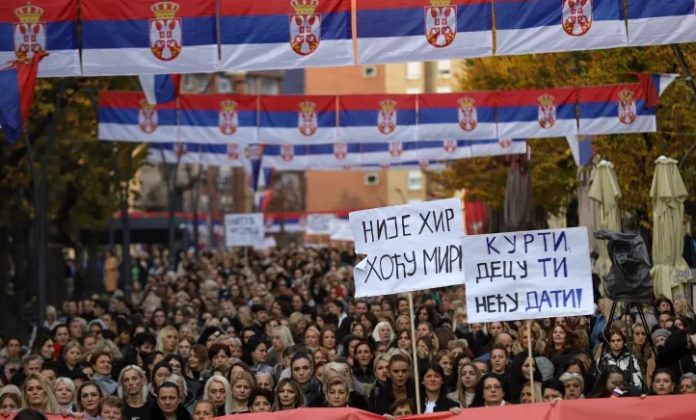Kosovo Serbs on Wednesday replaced their car licence plates issued by Serbian institutions and symbolising Kosovo towns with Republic of Kosovo (RKS) plates, ending a long-running dispute.
Veton Elshani, deputy director of the Kosovo Northern Region Police, told media that about 1,500 people in the region had received RKS number plates since 1 November. Serbs in northern Kosovo formed a huge queue at a vehicle inspection station in the predominantly Serbian northern town of Mitrovica. Kosovo Serb Dragan Kostic, who was in the queue, said that until now he had been able to use his car with Serbian licence plates without hindrance. He said:
“Today I came to re-register my vehicle from the KM plate (issued by Serbia) to RKS. I decided to do this because there was no other way out. I live in a country we do not recognize. But realistically, it is known. The whole world has accepted it, but I don’t want it.”
A group of Serbs who do not wish to receive RKS licence plates intend to register their cars in Serbian cities and use them in Kosovo as an alternative.
The Government of Kosovo announced that from 1 November to 1 December, an additional period will be granted to replace car licence plates issued by Serbian institutions and emblematic of Kosovo cities with RKS plates in predominantly Serb populated areas. Those vehicles that do not have their plates replaced by 1 December will not be allowed to drive in the province.
The process of changing car licence plates has repeatedly caused crises in the north of the country. There are about 10,000 vehicles with illegal licence plates in the country.
Serbs who did not want to change their car licence plates barricaded the main streets of northern settlements on 31 July 2022 and collectively walked out of Kosovo’s central and local institutions in November of the same year. This year, more than 10 vehicles belonging to Kosovo Serbs who had received RKS licence plates were set on fire by an unknown person or persons while parked.
The issue of Kosovo’s independence sparked the 1998-1999 war, in which some 13,000 people were killed. Serbia launched a brutal repression to suppress the separatist uprising of ethnic Albanians.
In 1999, NATO bombed Serbia to end the war. Some 3,700 peacekeepers remain in the country to maintain the fragile peace.
Serbia considers Kosovo, which declared unilateral independence in 2008, to be its territory.
